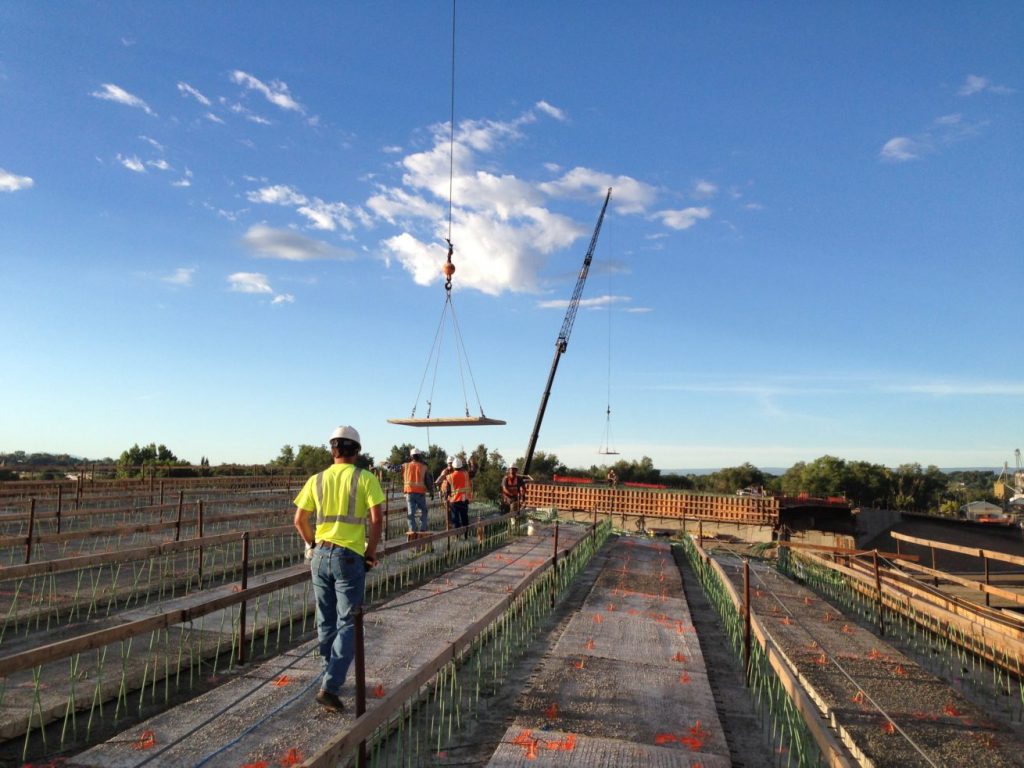Why a Construction Career?
There are 4 reasons why a person should choose a construction career.
- Even Playing Field
- Increased Salaries
- Career Stability
- Diversity & Mobility
Even Playing Field
A construction career provides an opportunity that few other industries can. Construction careers allow for anyone with a strong work ethic to succeed beyond their wildest imagination. Very few industries allow for bottom up growth.
What do I mean by bottom up growth? I mean a person with no experience can start at an entry level construction job and then finish their career as an owner, CEO, engineer, you name it. You do not believe me. Let get into some details.
According to recent studies there are over 14 million workers in the infrastructure industry in the United State alone. I would guess this number is even higher. With over 14 million jobs this means entry into the industry is easy compared to other industries. 14 million jobs also mean there are options on which jobs you can take.
No advanced degree is required to start your construction career. You can absolutely obtain a degree as you progress your career, but a degree is not required. I would argue the most important degree to obtain, is the degree from learning on the job.
If you show up and work hard every day you will learn more at work than anyone could teach you in a classroom. The experience gained from working in invaluable. And there are few industries that let people gain their knowledge from day one on the job.
All this means the barrier to entry in infrastructure is almost nothing. Anyone who wants to work hard can step on the field.
Increased Salaries
Many people think infrastructure jobs do not pay well. Unfortunately for a lot of people they are wrong. Construction entry level jobs almost always pay hire wages than other entry level jobs in different industries. For example, an entry level position at a fast-food restaurant can be as low as $8 per hour. An entry level position in infrastructure can start at $18 per hour.
Not only do entry level jobs pay well, but so do other level jobs in infrastructure. And salaries are on the rise in construction. Construction worker’s salaries are expected to continue to steadily rise in future years.
Wages are expected to rise by 3.4%, another increase from the previous year.
Project managers can make an average salary of nearly $95,000 a year, construction managers can even make as much as some engineers and computer programmers. If you are considering a construction manager job in a large metropolitan area or at a larger company, your salary could even reach around $150,000 annually. And keep in mind some companies do not require a 4-year degree to be a construction manager.
Do not worry if project management is not the right fit for you. Construction workers without a college degree can earn median salaries around $80,000 a year for certain jobs. Some of the highest-paid careers with no four-year degree required include:
- Elevator installers and repairers
- Carpenter Foreman
- Plumbers
- Electricians
- Construction equipment operators
Career Stability
Construction is an industry with high projections for new employment opportunities. Positions vary, ranging from unskilled laborer to roles that require extensive training, education, and skills.
There are currently significant labor shortages in construction throughout the country. These employee shortages are project to last well into the future. Future labor shortages mean great employment opportunities for years to come.
Overall, the construction industry employed over 14 million workers in 2019 according to the Bureau of Labor Statistics. Construction is projected to add 864,700 new jobs by 2026. Employment is estimated to grow 12% from 2016 to 2026.
Which jobs need the most employees? All jobs in the construction sector are projected to have an increase in employment.
Projected growth ranges from 1%, which is far below the average for all jobs (8.4%), for Drywall and Ceiling Tile Installers, to 105% for Solar Photovoltaic Installers. Almost all the major job categories within construction are projected to grow at above-average rates.
Why are more people not joining the infrastructure industry? A survey of millennials from NAHB found the problem is the perception of infrastructure jobs. The survey found two main factors for why people are not joining the industry. The first issue is people desire less physically demanding jobs. The second issue is people believe infrastructure work is difficult.
While there are jobs in infrastructure that are physically demanding and difficult, with recent advancements in technology these jobs are getting easier.
Even with new technological advancements labor shortage remain a massive problem for employers. Over 80% of contractors are reporting they cannot find the skilled workers they need. With so many people refusing to consider a career in infrastructure, the future of qualified employee shortages continues to look bleak. The good news is for those who join the industry the future looks bright.
Diversity & Mobility
One of the great aspects of the construction industry is its diversity. Because of the diversity in construction there are endless opportunities. There is diversity in career paths, people, ideas, and the list goes on.
Diversity is great, but why should someone care about this in deciding what career to start? It is simple! The diversity offered by infrastructure provides endless opportunities for people. What other industry can a person find so many different career paths, working with such a wide range of different people.
For example, within the infrastructure industry there are numerous sectors. These sectors include commercial, industrial, residential, and engineering projects like roads, bridges, and utility systems. These sectors range in size from one-man projects, to mega projects that involve thousands of people from all over the globe.
And there is even better news. Those are just sectors within infrastructure. Within those sectors there are thousands of different positions a person can decide to work in. There are office jobs, field jobs, engineers, carpenters, and list could go on and on.
Nothing you see in the world around you gets built without the construction industry. And as the world continues to grow more people are needed to build it. This means you will find people from just about every background in this industry.
An additional reason why the industry is so diverse is because infrastructure takes place everywhere on the planet. There is no corner of the world where some infrastructure has not taken place. This is great news for people who are willing to move for opportunities.
Say you are happy with where you are living. Recent advancements in technology are making more infrastructure jobs remote. As each year goes by more and more careers in infrastructure are opening to working remotely.



